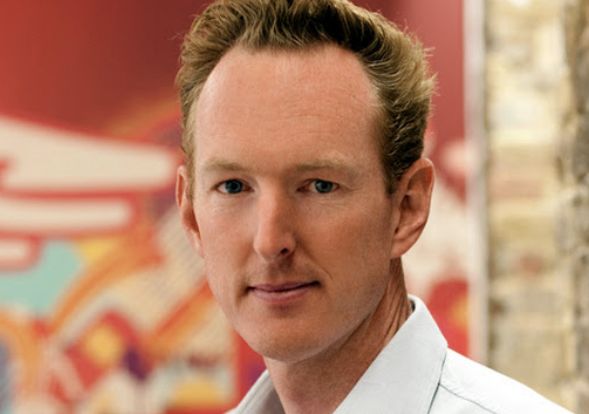Saturday Sitdown: Uber UK boss Jamie Heywood on the recovery, workers’ rights and electric vehicles

Jamie Heywood, Uber’s top man in the UK, Northern and Eastern Europe, has a spring in his step – at least, as much as you can see that on Zoom.
Since the reopening of London’s bars and restaurants, with tables next to heaters prized like rare artefacts, Uber has seen rides spike upwards as Londoners reacquaint themselves with their city.
“For a transport company, Covid has been fairly… tough,” Heywood says, with notable understatement. “But the green shoots are coming through exceptionally strongly.”
It’s not just the globe’s economies going into deep freeze that made last year particularly tough for Uber in the UK.
A high-profile Supreme Court ruling in favour of former Uber drivers – in which the Court judged they were Uber workers, rather than self-employed contractors – has caused headaches for firms across the gig economy.
Uber responded by changing the terms and conditions for drivers – they are now paid minimum wage whilst they are on trips, receive holiday pay and are auto-enrolled into a pension scheme.
The new arrangements won praise from the GMB Union, of all places, who have said the firm is now treating its most important asset “fairly.” It’s a far cry from the constant war of just a few years ago over workers’ rights.
Heywood is clear it was the right thing to do, but also that calls for Uber to go further – paying drivers simply when they’re logged on to the app, rather than on trips – would both hit at the heart of the point of flexible working, as well as be open to abuse.
“If you think about it from a kind of common sense point of view, what anyone could do is log on to five apps, reject every single trip or just not respond, and get minimum wage, holiday pay and auto-enrolled pensions for 24 hours a day from as many providers as you’re logged on to,” he says. It’s a compelling argument.
Read more: Uber Boat chosen by TfL to run Hammersmith Bridge ferry service
“Absurd”
Much of the framework of the gig economy is being created on a case-by-case, firm-by-firm basis. And whilst the Supreme Court ruling against Uber was largely backward-looking, the implications are now becoming clear – Addison Lee had a bid to appeal a similar ruling against them rejected after the Uber decision.
But Heywood is keenly aware that the current situation – in which different operators, doing largely the same thing, have different regulatory and legal requirements.
“Many drivers in London will multi app,” he tells me, meaning they will be active not just on Uber’s app but on competitors like Ola and Bolt, too.
“A driver now will get working benefits on a trip that they accept through the Uber app, but they will have a different legal status and have different legal benefits if they accept a trip through some of our competitors,” he says.
“That does seem to me to absurd.”
Heywood thinks there’s a case for Government to step in and make clear the rules of the game for all operators. Having been battered by the courts, you can understand Uber’s incentive to have their competitors on a level playing field – Ola and Bolt’s drivers, for instance, are not considered workers when they’re on a trip with those firms.
“I can certainly see a benefit in the Government coming in and kind of legislating to clarify what they want the future of work to look like in this wider domain.”
Going green
Uber recently launched a new ‘green’ service in the capital, in which users can request they ride in an electric vehicle. Heywood says uptake is high – but there are challenges in turning the rest of the fleet fully green.
Lots of people, if given a choice between an EV and a non-EV at the same price, they’ll choose the EV
“We want to try and expand it as quickly as we can and the key thing there is EV charging infrastructure near where drivers actually live,” he says.
London’s electric charging infrastructure notably lags other European cities. London has 200 public charging points, with plans for 300 more – Amsterdam has 3,000.
“Many of these drivers will live in apartments where they don’t necessarily have off-street parking so we need to make sure that they can charge their vehicles,” says Heywood.
One for the new (or most likely, re-elected) Mayor to ponder, perhaps.
Profitability
The corollary to every Uber story is questions about when the firm will become genuinely profitable.
“The aim is to hit profitability this year at the global level,” he says, but to do so Uber will need the recovery to be “strong and robust.”
They are certainly leaning in to the hope that it will be: the firm is adding 20,000 UK drivers this year alone. Heywood is clearly hopeful that the post-lockdown surge will continue.
“Us announcing we want another 20,000 drivers before the end of the year is a really strong sign that recovery is coming back, and when people travel, drivers earn money, and when drivers earn money, we earn revenue.
“So that’s the equation to profitability. It’s not that complicated.”
Read more: City A.M. interviews Rishi Sunak on the future of the City of London